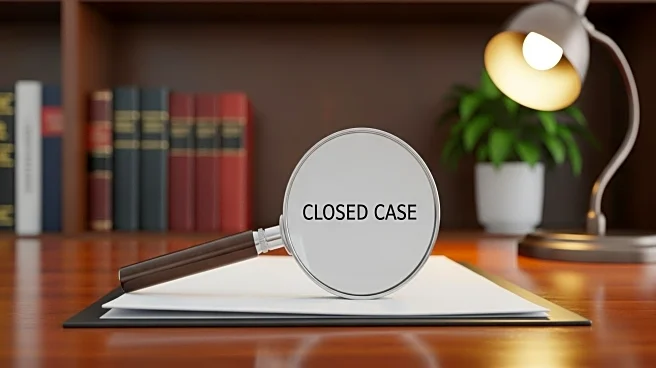What's Happening?
Ed Martin, a top official at the Department of Justice and director of the Justice Department's Weaponization Working Group, has retracted a request for information from an attorney representing retired FBI agent William Aldenberg. Aldenberg was among the first responders to the Sandy Hook Elementary School shooting and later testified in a defamation trial against conspiracy theorist Alex Jones. Martin's initial inquiry suggested Aldenberg might be under criminal investigation for his testimony, but this was rescinded following backlash and a directive from Deputy Attorney General Todd Blanche. The reversal came after Jones publicized the inquiry, which was perceived as part of a harassment campaign against Aldenberg and the Sandy Hook families.
Why It's Important?
The withdrawal of the inquiry is significant as it highlights the ongoing legal and social battles surrounding conspiracy theories and their impact on victims and public figures. The case against Alex Jones, which resulted in a $90 million judgment, underscores the legal consequences of spreading false information. The DOJ's involvement and subsequent retraction of the inquiry reflect the sensitive nature of government actions in cases involving public harassment and defamation. This development may influence how similar cases are handled in the future, particularly concerning the protection of individuals who testify against conspiracy theorists.
What's Next?
The DOJ's decision to rescind the inquiry may lead to further scrutiny of its actions and policies regarding the protection of individuals involved in high-profile defamation cases. Stakeholders, including legal experts and advocacy groups, may push for clearer guidelines to prevent misuse of government power in such contexts. Additionally, the Sandy Hook families and their legal representatives may continue to seek justice and protection from ongoing harassment linked to conspiracy theories.









